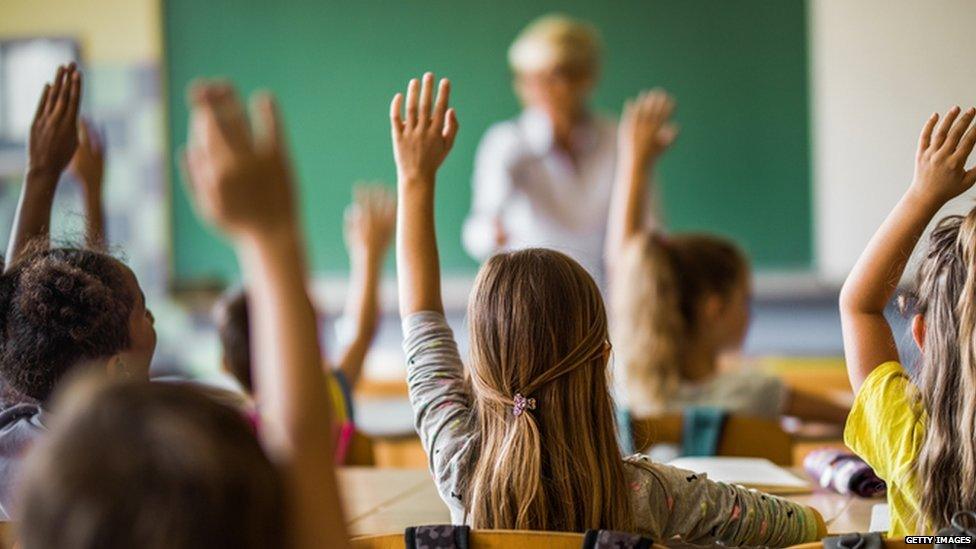Schools warned against 'gaming' exam league tables
- Published

Schools have been warned against "gaming" their league-table ranking by getting pupils to take qualifications that are of low value to them.
Ofsted chief Amanda Spielman said good grades were "hollow" if children missed out on a rounded education.
The head of England's education watchdog criticised too narrow a focus on exam results.
"We should not incentivise apparent success without substance," Ms Spielman said.
'Real achievement'
Launching Ofsted's annual report, the chief inspector said: "We must guard against restricting education excessively.
"Exam results are important but have to reflect real achievement."
Ms Spielman said inspectors had visited a school where every student took a sports science qualification, rather than using it for a "valuable GCSE slot".
The English for Speakers of Other Languages qualification is no longer counted in school league tables but in previous years Ofsted said it had been taken by some native English speakers.
Harmed results
The Ofsted chief said such tactics denied children a broad education - and could be at the expense of learning languages or art or drama classes.
"We mustn't succumb to the seductive but wrong-headed logic that we help disadvantaged children by turning a blind eye to schools that narrow education," she said.
She warned against "narrow repetitive" testing for exams by schools.
But in primary science, the report suggested, a reduction in testing had harmed results - with England performing less well in international Programme for International Student Assessment (Pisa) tests in the subject.
'Intolerable protests'
The stopping of national curriculum tests, often known as Sats, in science had meant schools had put more focus on English and maths, to the detriment of science, said the report.
The annual report showed 86% of schools in England were rated outstanding or good.
This has risen from 68% in 2010 - but this upward curve could be reversed in future years, as outstanding schools once again face routine inspections.
Ms Spielman welcomed the government's decision to scrap outstanding schools' exemption from regular inspection - saying the lack of scrutiny had deprived parents of an "up-to-date picture".
The chief inspector's overview of the year accused the government of being slow to react to "intolerable protests" at Parkfield school, in Birmingham, in a dispute about LGBT lessons.
Children's homes
There were concerns raised about apprenticeships - with Ms Spielman saying they needed to be improved for younger people, with too many apprenticeships going to older workers, in jobs they might already be doing.
The changing ownership of children's homes was also raised.
The report said this had once been mostly an area for local authorities and charities but three-quarters of provision was now privately owned.
It was not always clear who was actually at the "top of the company tree" - and such a lack of clarity was a challenge for regulators.
'Challenging circumstances'
Paul Whiteman, leader of the National Association of Head Teachers, rejected accusations of schools manipulating the league tables.
"I don't recognise schools choosing to 'game' the system," he said.
"Although I do see some schools finding it impossible to balance the competing demands of government policy and inspection.
"It should be remembered that this is happening in a tiny minority of cases, so it would be wrong to assert that it is a widespread problem."
Geoff Barton, leader of the ASCL head teachers' union, said schools should be rewarded for "doing the right thing".
"Performance tables currently penalise schools which have more pupils in challenging circumstances. This is wrong," he said.
- Published10 January 2020
- Published2 October 2019